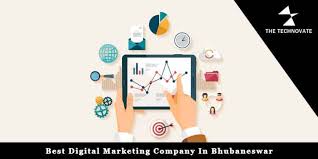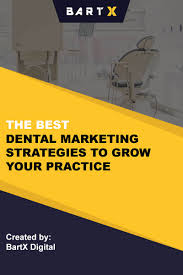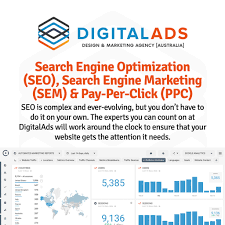Effective Online Marketing: Strategies for Success
In today’s digital age, online marketing has become an essential tool for businesses of all sizes to reach their target audience and grow their brand. However, with so many channels and platforms available, it can be overwhelming to know where to start. Here are some effective strategies to help you succeed in online marketing.
Define Your Target Audience
The first step in any successful marketing campaign is identifying your target audience. Who are they? What do they want? What problems do they need solving? Once you have a clear understanding of your ideal customer, you can tailor your messaging and tactics to appeal directly to them.
Develop a Strong Brand Identity
Your brand is more than just a logo or tagline; it’s the personality and values that define your business. A strong brand identity creates an emotional connection with your audience and sets you apart from competitors. Ensure that your branding is consistent across all channels, including your website, social media profiles, and advertising campaigns.
Create Valuable Content
Content marketing is one of the most effective ways to attract and engage potential customers. By creating valuable content that educates or entertains your audience, you establish yourself as an authority in your industry and build trust with potential customers. Blog posts, videos, infographics, podcasts, and social media posts are all great ways to share content with your audience.
Optimize Your Website for Search Engines
Search engine optimization (SEO) is the process of optimizing your website so that it ranks higher in search engine results pages (SERPs). This increases visibility and drives traffic to your site. To optimize effectively, research keywords relevant to your business and include them strategically in page titles, meta descriptions, headings, content, and URLs.
Leverage Social Media
Social media platforms like Facebook, Twitter, Instagram, LinkedIn provide a powerful way to connect with potential customers on a personal level. Develop a social media strategy that aligns with your brand identity and target audience. Engage with followers by responding to comments and messages, and post consistently to maintain a strong presence.
Use Paid Advertising
Paid advertising allows you to reach a larger audience quickly and effectively. Platforms like Google Ads, Facebook Ads, and LinkedIn Ads provide targeting options that allow you to reach specific demographics, interests, and behaviors. Set clear goals for your campaigns, track performance metrics like click-through rates (CTR) and conversion rates, and adjust your strategy as needed.
In conclusion, effective online marketing requires a strategic approach that aligns with your brand identity and target audience. By defining your target audience, developing a strong brand identity, creating valuable content, optimizing your website for search engines, leveraging social media, and using paid advertising strategically, you can attract more customers and grow your business online.
5 Common Questions Answered: Mastering Effective Online Marketing Strategies
- How can I create an effective online marketing strategy?
- What are the best ways to reach my target audience online?
- How do I measure the success of my online marketing efforts?
- What are the most important elements of an effective online marketing campaign?
- What are the latest trends in online marketing that I should be aware of?
How can I create an effective online marketing strategy?
Creating an effective online marketing strategy can seem like a daunting task, but with the right approach, it can be a manageable and rewarding process. Here are some steps to follow:
Define Your Goals
Your first step is to define your goals. What do you want to achieve with your online marketing efforts? Common goals include increasing website traffic, generating leads, boosting sales, or building brand awareness.
Identify Your Target Audience
Once you have your goals in mind, it’s important to identify your target audience. Who are they? What are their needs and pain points? What motivates them? Understanding your audience will help you tailor your messaging and tactics to resonate with them.
Develop Your Brand Identity
Your brand identity is the personality and values that define your business. It’s essential to develop a strong brand identity that resonates with your target audience and sets you apart from competitors.
Create Valuable Content
Content marketing is one of the most effective ways to attract and engage potential customers. By creating valuable content that educates or entertains your audience, you establish yourself as an authority in your industry and build trust with potential customers.
Optimize Your Website for Search Engines
Search engine optimization (SEO) is the process of optimizing your website so that it ranks higher in search engine results pages (SERPs). This increases visibility and drives traffic to your site.
Leverage Social Media
Social media platforms like Facebook, Twitter, Instagram, LinkedIn provide a powerful way to connect with potential customers on a personal level. Develop a social media strategy that aligns with your brand identity and target audience.
Use Paid Advertising Strategically
Paid advertising allows you to reach a larger audience quickly and effectively. Platforms like Google Ads, Facebook Ads, and LinkedIn Ads provide targeting options that allow you to reach specific demographics, interests, and behaviors.
Track Your Results
It’s important to track your online marketing efforts to see what’s working and what’s not. Use tools like Google Analytics to track website traffic and conversion rates, social media analytics to monitor engagement and follower growth, and paid advertising metrics to measure ROI.
In conclusion, creating an effective online marketing strategy involves defining your goals, identifying your target audience, developing your brand identity, creating valuable content, optimizing your website for search engines, leveraging social media, using paid advertising strategically, and tracking your results. By following these steps and adjusting your strategy as needed, you can attract more customers and grow your business online.
What are the best ways to reach my target audience online?
There are several effective ways to reach your target audience online. Here are some of the best ways:
Social Media Marketing
Social media platforms like Facebook, Twitter, Instagram, and LinkedIn provide a powerful way to connect with potential customers on a personal level. Develop a social media strategy that aligns with your brand identity and target audience. Engage with followers by responding to comments and messages, and post consistently to maintain a strong presence.
Search Engine Optimization (SEO)
Search engine optimization (SEO) is the process of optimizing your website so that it ranks higher in search engine results pages (SERPs). This increases visibility and drives traffic to your site. To optimize effectively, research keywords relevant to your business and include them strategically in page titles, meta descriptions, headings, content, and URLs.
Content Marketing
Content marketing is one of the most effective ways to attract and engage potential customers. By creating valuable content that educates or entertains your audience, you establish yourself as an authority in your industry and build trust with potential customers. Blog posts, videos, infographics, podcasts, and social media posts are all great ways to share content with your audience.
Email Marketing
Email marketing is a cost-effective way to reach out to potential customers directly. Develop an email list by offering valuable content or incentives in exchange for contact information. Use email marketing software like Mailchimp or Constant Contact to create professional-looking emails that deliver targeted messaging.
Influencer Marketing
Influencer marketing involves partnering with individuals who have a significant following on social media or other online platforms relevant to your industry or target audience. They promote your brand or product in exchange for compensation or other incentives.
Paid Advertising
Paid advertising allows you to reach a larger audience quickly and effectively. Platforms like Google Ads, Facebook Ads, and LinkedIn Ads provide targeting options that allow you to reach specific demographics, interests, and behaviors. Set clear goals for your campaigns, track performance metrics like click-through rates (CTR) and conversion rates, and adjust your strategy as needed.
In conclusion, the best ways to reach your target audience online depend on your business goals, target audience, and available resources. By developing a strategic approach that aligns with your brand identity and target audience, you can attract more customers and grow your business online.
How do I measure the success of my online marketing efforts?
Measuring the success of your online marketing efforts is essential to understand what works and what doesn’t, and to optimize your strategy accordingly. Here are some metrics that can help you measure the effectiveness of your online marketing:
Website Traffic
Website traffic is a fundamental metric that tells you how many people are visiting your website. You can use tools like Google Analytics to track your website traffic and see where it’s coming from. If you notice a spike in traffic after a particular campaign or promotion, it’s a good indication that it was successful.
Conversion Rate
Conversion rate measures the percentage of visitors who take a specific action on your website, such as making a purchase, filling out a form, or subscribing to your newsletter. By tracking conversion rates, you can determine how effective your landing pages and calls-to-action are at converting visitors into customers.
Social Media Engagement
Social media engagement measures how many likes, comments, shares, and followers you have on social media platforms. It’s an excellent way to gauge how well-received your content is and how engaged your audience is with your brand.
Email Marketing Metrics
Email marketing metrics include open rates, click-through rates (CTR), bounce rates, and unsubscribe rates. These metrics help you understand how effective your email campaigns are at engaging subscribers and driving conversions.
Return on Investment (ROI)
ROI measures the revenue generated by your marketing efforts compared to the cost of those efforts. It’s an essential metric for determining whether or not your marketing campaigns are profitable.
In conclusion, measuring the success of online marketing requires tracking multiple metrics across various channels. By analyzing these metrics regularly and adjusting your strategy accordingly, you can optimize your online marketing efforts for maximum impact.
What are the most important elements of an effective online marketing campaign?
An effective online marketing campaign should include the following elements:
- Clear Goals: Define clear and measurable goals for your campaign. This could be increasing website traffic, generating leads, or boosting sales.
- Target Audience: Identify your target audience and create content that resonates with them. This will help you to connect with your audience and increase engagement.
- Strong Brand Identity: Develop a strong brand identity that communicates your values and personality. Consistency across all channels is essential to build brand recognition.
- Valuable Content: Create valuable content that educates or entertains your audience. This will help you establish yourself as an authority in your industry and build trust with potential customers.
- Search Engine Optimization (SEO): Optimize your website for search engines by researching relevant keywords and including them strategically in page titles, meta descriptions, headings, content, and URLs.
- Social Media Presence: Leverage social media platforms to connect with potential customers on a personal level. Develop a social media strategy that aligns with your brand identity and target audience.
- Paid Advertising: Use paid advertising to reach a larger audience quickly and effectively. Platforms like Google Ads, Facebook Ads, and LinkedIn Ads provide targeting options that allow you to reach specific demographics, interests, and behaviors.
- Analytics: Monitor performance metrics like website traffic, click-through rates (CTR), conversion rates, and engagement rates regularly to measure the success of your campaign.
In conclusion, an effective online marketing campaign requires a strategic approach that aligns with your business goals, target audience, brand identity, valuable content creation, SEO optimization for search engines visibility as well as social media presence and paid advertising campaigns while constantly monitoring analytics to track progress towards the set goals of the campaign.
What are the latest trends in online marketing that I should be aware of?
Chatbots: Chatbots are automated programs that can interact with customers and provide them with relevant information. They can be used to answer common customer questions, provide personalized recommendations, and even complete transactions.
Artificial Intelligence (AI): AI is being used to automate many marketing tasks, such as segmenting audiences, optimizing content for search engines, and personalizing customer experiences.
Social Media Advertising: Social media advertising is becoming increasingly popular as a way to reach target audiences and engage with them in real-time. Platforms like Facebook, Instagram, Twitter, and LinkedIn all offer powerful ad targeting options that allow marketers to reach the right people at the right time.
Video Content: Video content is becoming increasingly popular as a way to capture attention and engage viewers in a more immersive way than traditional text-based content. Videos can be used for product demonstrations, tutorials, educational content, or just about anything else you can think of!
5. Influencer Marketing: Influencers are individuals who have a large following on social media and are seen as experts in their field or industry. Brands can partner with influencers to promote their products or services in order to reach larger audiences and drive more sales.




